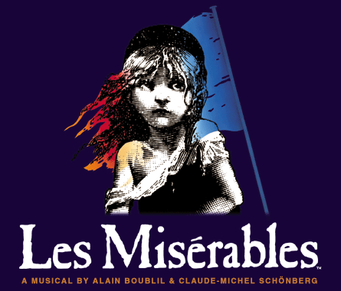This is the first of my two answers. Matt Zwolinski’s Critique of Moral Equalityhe focuses on the claim that this idea implies that welfare and taxation are morally unjust. Is this true? My answer is not necessarily.
I say “not necessarily” because it depends on whether you are an absolutist deontologist – that is, someone who believes that there are rights and obligations that must not be violated at any time or place, regardless of the circumstances. Property Rights If transgression or theft cannot be justified in any way, then moral equality does indeed force the conclusion that Zwolinski points out. But absolutist deontology leads to other implications that are patently absurd. To illustrate what I mean, here are some thought experiments, not of my own making:
- Imagine you are on the balcony of a 20-story apartment building. Suddenly, the railing you are leaning on gives way and you fall towards the ground. Luckily, you are able to grab a flagpole that is hanging from the balcony of a 15-story apartment building. You struggle to climb up to the balcony and as you try to pull yourself up, the apartment owner arrives and commands you not to use any of his property. No matter how much you plead, he will not allow you to climb onto the balcony and leave the apartment building and demands that you immediately let go of the flagpole. After all, it is his property.
- You live in a house on one acre of land in the country. One day I will buy all of your land within 100 yards of your property line. Your house will now effectively be within 100 yards of my property. Of course I will respect your property and guarantee that I will not touch anything that belongs to you, but I will also expect the same from you. Furthermore, I will not allow you to set foot on my property. Doing so will be trespassing on my property and I will retaliate. You will not be able to go to work or get supplies or food without passing through my property.
- Your child is starving to death and your only options are to either steal bread to save your child’s life or let your child starve. (Please specify that there are no other options. It’s just one or the other.)
If you are an absolute deontologist and you hold that property rights cannot be violated anywhere and at any time, you would be forced to say that the appropriate response in this situation is to let go of the flagpole and fall to your death, or to lock yourself in your house and starve to death, or to let your child die rather than steal the bread. If that is really your conclusion, this is your exit from this conversation, because nothing I say from this point on will move you. But for the rest of us, it is clear that in these cases, it is justified to climb the apartment and run across the land to steal the bread in order to save the child’s life. This does not mean that these actions are not rights violations, only that rights violations can be justified.
All this is accepted by prominent defenders of the moral equality theory cited by Zwolinski. Michael Huemer, an advocate of anarcho-capitalism, has no problem accepting this. For example, he writes: “Contrast this case: Jean Valjean steals bread to feed his sister’s children. Suppose that the children would otherwise starve. It does not follow from this that he did not really steal the bread. At best, we can say that the theft was justified.” For this reason, Huemer say The idea that “taxation can be justified even if it is theft” is “a perfectly understandable position.” Huemer also acknowledges that “stealing to provide social services may be justified.”

Now, let us return to the moral equality argument. Since individuals are justified in violating rights in these circumstances, moral equality requires that the government Also Relatedly, similar actions are justified: if I am justified in taking a loaf of bread to keep little Marvin from starving to death, then a welfare program that provides bread to Marvin would be justified by the moral equality thesis. The concerns Zwolinski expresses arise as a result of absolutism, not moral equality.
This ties in with another objection Zwolinski raises with a similar argument about moral equality: how we should act towards children. Zwolinski says, “If you try to build a political philosophy from micro-level examples of adult interactions, like moral equality does, you end up getting a bit stuck about what to say about children. Children don’t fit the model, so your theory ends up treating them like strange outliers.”
But this seems to me to be missing the point. As far as I understand it, the moral equality thesis does not say that we must build our political philosophy from micro-level examples of adult interactions. It simply asserts that state agents do not get special moral immunity simply because they are state agents. So the question of the specific content of moral obligations, and how those obligations are derived, remains entirely open. You can believe in moral equality without believing that all moral obligations must be rooted in micro-level examples of adult interactions. You can believe that there are special obligations and responsibilities when children are involved, but that is totally orthogonal to the moral equality thesis.
To be fair, there are certainly thinkers in the libertarian tradition who, as Zwolinski says, do a poor job of dealing with children. Murray Rothbard argued that children should be free to run away from home as soon as they are old enough, and that parents should not be forced to feed or care for them, since that would violate the parents’ absolute right to self-ownership. But this flaw in Rothbard’s thinking, as seen in the thought experiment above, is the result of his absolutism, not of moral equality.
I would add one more point in favor of the welfare state: in cases where stealing is justified in order to feed hungry children, for example, there may be practical, rather than moral, advantages to feeding those children through some sort of government welfare program, rather than through individuals engaging in legitimate acts of theft.If Billy the baker sees someone stealing his bread, he will naturally try to stop him or turn him over to the police. However, it is not immediately clear whether the potential thief is an incarnation of Jean Valjean or someone who could easily afford the bread but does not want to pay. A well-run program would eliminate this uncertainty, because if access to the program would keep children from going hungry, there would be no need for them to steal from Billy, and therefore Billy can be sure that if he catches someone stealing his bread, that person is cheating and will be stopped legitimately.
Another consideration is that, although Jean Valjean may be justified in stealing to feed his sister’s starving children, the cost of his theft will inevitably fall on someone else. who Should those costs be justly borne? It doesn’t seem to single out anyone in particular. Valjean may steal from Billy the baker, but there is no particular reason why Billy and not someone else should bear the costs of the thefts. And if Billy runs a bakery in a neighborhood where there are many people in Valjean’s situation, then Billy may end up bearing the burden of these thefts in a way that Carl’s Croissant Shop, which is in a wealthy, well-guarded neighborhood, never experiences. While someone may be justified in engaging in acts that necessarily impose costs on someone else, if there is no specific “someone else” for whom this cost should justly be borne, then sharing the costs can prevent everyone from arbitrarily bearing an unjustly disproportionate burden from these (justifiable) thefts.
Now, I can certainly think of objections to the above argument, and responses to them, and counter-arguments to them, but what I’m saying is that, contrary to Zwolinski’s argument, you can accept moral equality and still be open to the idea that, for example, taxation and welfare might be justified.
But this doesn’t mean that the moral equality argument doesn’t have very strong implications. Even if we could justify taxation or welfare on the basis of moral equality, the range of programs that could be so justified is very narrow compared to the range of things that governments actually do. A program to feed hungry orphans might be justifiable. But spending hundreds of millions of dollars a year to subsidize the artistic interests of the wealthy through the National Endowment for the Arts certainly doesn’t pass this hurdle. Give a subsidy And it encourages the construction of housing in areas at high risk of flooding and other natural disasters. In that sense, Zwolinski is right that many of the government’s actual actions cannot be justified on the moral equality theory, but not in the cases he seems to cite.




